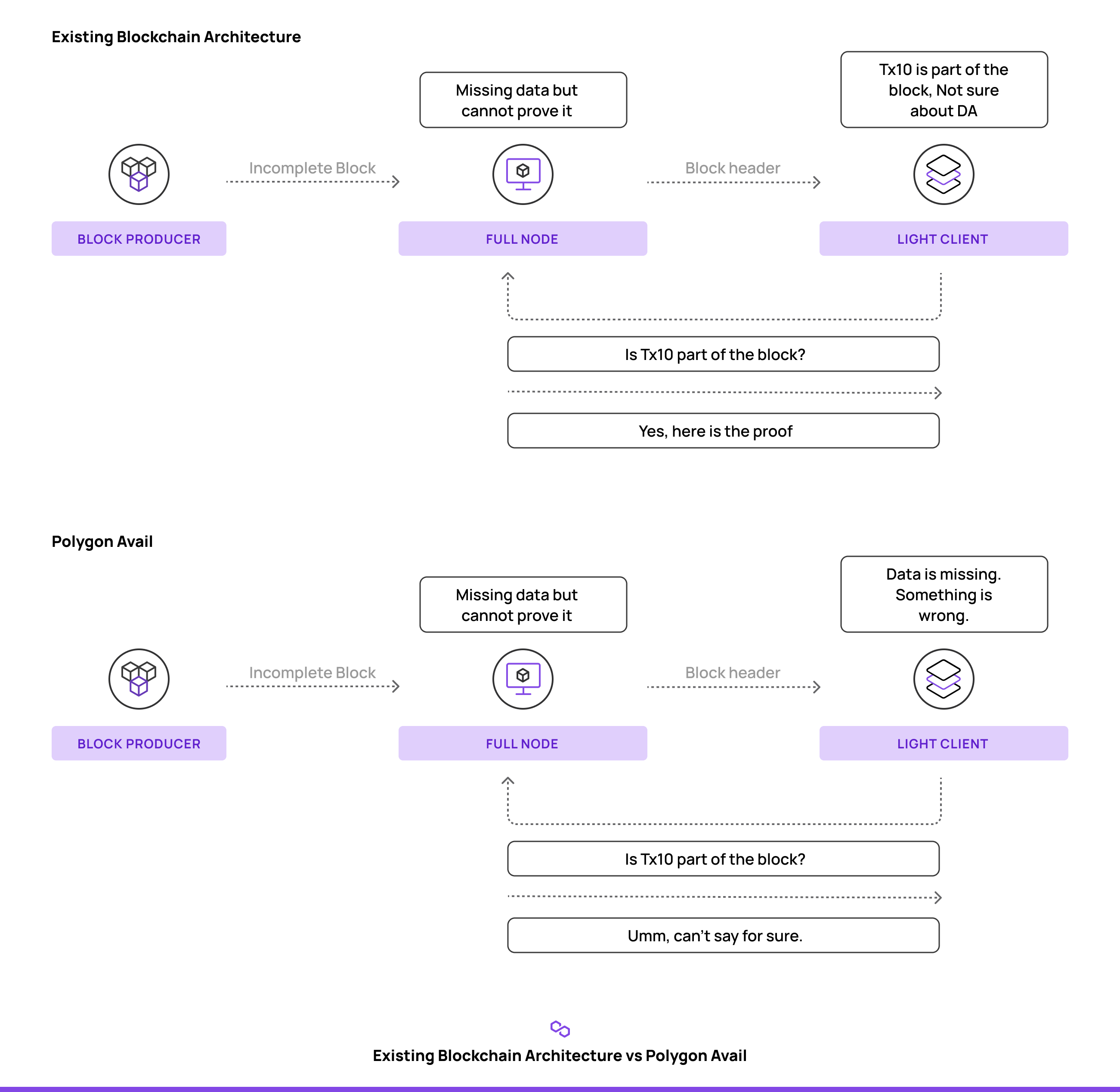Polygon (MATIC) made headlines yesterday: The platform announced that it would like to launch "Avail". The team behind Polygon, which has built a network based on the Ethereum blockchain with their project, wants to offer primarily standalone chains, sidechains and off-chain solutions with “Avail”. “Avail” is supposed to establish a new type of blockchains. What does that mean exactly? You will find out in the article.
According to the press release, “Avail” is described in the English original as a “robust general-purpose scalable data availability layer”. This means that "Avail" is intended to represent a multi-purpose, scalable and data availability-oriented blockchain. The press release also mentioned the start of an interest-bearing investment called Pickle.Finance.
Avail aims to become a better blockchain for many projects

Source: Medium/Polygon
Pickle.Finance: Interest-bearing collection of values
In another message, Polygon announced that Pickle.Finance will in future run on the Layer 2 solution and no longer on the Ethereum Mainnet as before. Furthermore, Pickle.Finance is to become a system in which users can collect their values in so-called “pickle jars”, for example “jam jars” and then collectively receive interest.
This is how "Pickle Farms" should be created and all participating users will benefit from the joint staking. This allows users to generate pickle tokens from a variety of values.
Polygon with good prospects
Polygon was very successful last year. It has reported both strong price growth and increasing user numbers and has started many new projects. MATIC had reached its all-time high 2 months ago, but with this new project the future still seems promising (and despite Layer 2 competition on Ethereum).
My Top PicksHoneygain - Passive earner that pays in BTC or PayPal
BetFury - Stack BFG for daily dividends - Play smart!
Pipeflare - Faucet that pays in ZCash and Doge, Games pay in DAIWomplay - Mobile dApp gaming platform that rewards in EOSCointiply - The #1 Crypto Earning SiteLiteCoinPay -The #1 FaucetPay earner for LitecoinUpland - Collect Digital Properties & Test Your SkillsPublish0X - Earn Money By Writing and Reading Articles!LBRY/Odysee - YouTube Alternative that lets you earn Money by viewing videos!FaucetPay - The #1 Microwallet PlatformFireFaucet - An earning site that pays better for some than Cointiply
FREEBTC - The #1 FaucetPay earner for Satoshi's
FaucetCrypto - An earning/faucet site that pays out instantly
DogeFaucet - Dogecoin Faucet
xFaucet - BTC, ETH, LTC, Doge, Dash, Tron, DGB, BCH, BNB, ZEC, FEY - Claim every 5 minutes
Konstantinova - BTC, ETH, LTC, Doge, Dash, Tron, DGB, BCH, BNB, ZEC, USDT, FEY, 25 Claims Daily


Comments
Post a Comment